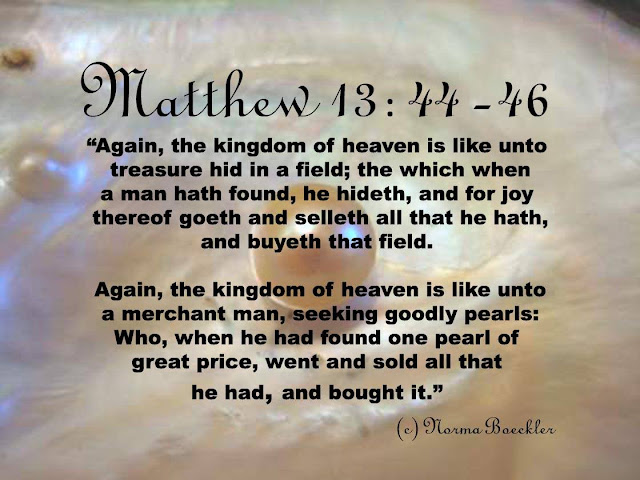Wayne Mueller
Think about this, ELS and LCMS fans - the former WELS VP and Seminary Professor
uses the Book of Concord upon which to wipe his disgusting feet.
Use of Symbols and Scripturesin the Church and Ministry Debate
http://essays.wls.wels.net/bitstream/handle/123456789/3382/MuellerSymbols_0.pdf?sequence=1&isAllowed=y
(W)ELS is not restricted to the Lutheran Confessions. Wayne Mueller states that appeals to the Lutheran Confessions did not resolve the UOJ controversy. He fails to explain that the reason the Lutheran Confessions did not end the controversies and why the Lutheran Confessions do not limit the (W)ELS in matters of doctrine and practice is because they reject the BOC as being the faithful explanation of God's chief articles of Christian faith which they as professing the Lutheran name have sworn and oath to uphold. There are far more quotes than these but this should help begin the discussion concerning the glory of the (W)ELS.
 |
What a drag - to be a WELS pastor, a Church and Changer,
and Wayne Mueller's son. |
"We apply the Confessions as a limited standard to judge those doctrines which they directly or incidentally addresses."
Page 5
"IV. Application of the Confessions to the Present Controversy
Appeal to the Lutheran symbols did not resolve the inspiration of Scriptures controversy. No, our confessions do not have the last word when it comes to determining what we are to teach. That belongs to Scripture. When, therefore, the matter of the inspiration of Scripture becomes a contested doctrine in the church, as it has, God expects us to state what Scripture states. It is not necessary to call a council of all Lutherans to determine what the Lutheran stand will be: Scripture has already determined that. We are not restricted to those doctrines laid down in our confessions. (Harold Wicks, Scripture is the Course and Norm for the Christian’s Faith and Life,’
Our Great Heritage, Vol. I, p 84)"
Page 6
"We are not restricted to those doctrines laid down in our confessions. This is the very procedure followed in the confessions themselves. The Augustana did not restrict itself to those points treated in the Apostles’ Creed. The Formula of Concord [1577], in turn, did not restrict itself to those doctrinal statements found in the Augustana [1530], the Apology [1531], or the Smalcald articles [1537]. It went beyond them, because the framers of these documents considered it wise to do so. This is especially true of its Article on God’s Eternal Foreknowledge and Election. (Harold Wicks, "What is Doctrine According to Scripture and the Lutheran Confessions,’
Our Great Heritage, Vol. I, p 841"
Page 7
"Appeal to the Lutheran symbols did not resolve the objective justification controversy.
(Note Vernon Harley’s use of the Confessions to limit exegetical conclusions in his
"Exegetical Study of Scripture Passages Generally Used to Teach ‘Objective’ or ‘Universal’ Justification" 1984, p8) "This is basically why they contend so strongly for ‘objective’ justification and go a step further than our Lutheran Confessions insisting that Objective Justification is the Chief article of the Christian Faith, while our Confessions give that honor to justification by grace through faith" (Formula of Concord, S.D. III, 6, p. 540 in Tappert)."
Page 7
http://www.wlsessays.net/files/MuellerSymbols.pdf
***
GJ - Judging from LI's experience, I would say that the Little Schoolhouse on the Prairie does a better job than The Sausage Factory - when it comes to using the Book of Concord.
However, since UOJ Wisconsinites dominate both sects, the results are the same. The ELS pastors know Lutheran doctrine better, but the ELS leaders parrot the WELS line on everything.
John Shep wants people to know that he coined the line, "When Mischke drinks beer in Milwaukee, Orvick burps in Mankato." Shep is now an ELCA pastor.
First of all, WELS pastors do not know Lutheran doctrine at all. What they know, they despise. There are exceptions, but they have to stay under the WELSian radar, and away from the WELS KGB.
WELS does a poor job of teaching the Confessions, so no one has the capacity to read and teach the Confessions - not that they care to do so. Wayne Mueller, another advocate of UOJ and Church Growth, is typical in his snotty attitude about the Book of Concord.
Everyone must look at the claims of WELS and the reality. The gap is breathtaking, like looking across the Grand Canyon the first time. That is always the WELS approach - a boastful claim for the public, a snide and arrogant attitude for the brothers. Their
quia subscription might as well be a Chia subscription to the Book of Concord.
A Chia subscription to the Book of Concord - is just as meaningless as a quia subscription to a book they neither trust nor comprehend.
But it will grow on you.
---
2016 Update
 |
| No, they are rationalistic Pietists. |
GJ - In 1987, WELS always made a point of sticking their noses in the air whenever the LCMS was mentioned. But bad times make strange bedfellows. The three Synod Presidents have one thing in common - they disregard the Book of Concord completely and teach against the Chief Article of the Christian Religion - Justification by Faith. Now they rejoice in their joint proclamation of
Universal Objective Justification - forgiveness without faith, universal absolution nowhere mentioned in the Scriptures yet spawned in Halle in the era of Pietism.
Jointly, they despise
Christian News, which is really their free public relations machine and spiker of the news. One is far more likely to read about the crimes of the ELS-WELS-LCMS church workers in the press than in the synodical rags or
Christian News.
Many think Hillary Clinton is a rape and abuse enabler. The synod presidents and
Christian News are even more so. The so-called Lutheran leaders and their submissive, xerox-room editor are certain that the truth would hurt their synodical business. They suppress felony arrests, the FBI raid at WELS headquarters, murders, and the rites of sodomy (unless they are Roman Catholic).
 |
Strategic leaking through kin works - how well?
Deniability was invented by Richard Nixon,
perfected by WELS clergy. |
The irony is, these leaders gladly promote falsehoods in order to protect their fiefdoms. They surround themselves with cronies so incompetent that the leaders look rather intelligent in comparison. The truth would make them stronger, albeit out of work.
Their falsehoods have the same effect as the drunken destruction of Ulm Cathedral. The polluting efforts of the Lutheran alcoholics are gradually eroding the structure they pretend to cherish.
 |
The New Ulm WELS members are
as dedicated to eroding the Church
as the Ulm drunks are. |
Here is a game WELS clergy play. They pretend to be sympathetic when they ask people about what is wrong. But be warned - WELS clergy are like mushrooms - they are the fruiting bodies of fungus. They have no value except to send their spores into the air, to land and draw nutrition from rot and decay, which they facilitate. WELS clergy gather information to use against critics. "Where did you get that from? Who told you?" They realize that addressing a problem, even the destruction of a parish, will only harm their own careers. Everything told them will be used against the dissenter.
Any falsehood will do. If someone leaves the congregation, "he moved away from our town," which is odd when the same person is still around.
The Mordor Class of 1970 is passing into history. Six men have destroyed more churches than the Chicago Fire, grabbing colossal salaries drawn from
Other People's Money in the process. Christian News gets about $220,000 per year in donations to help protect their dogma, their destructive programs, and their overblown reputations.












































